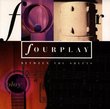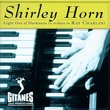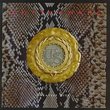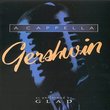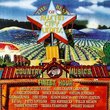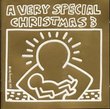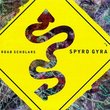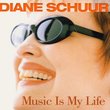| All Artists: Complete Blue Note 50's Sessions Title: Complete Blue Note 50's Sessions Members Wishing: 6 Total Copies: 0 Label: Blue Note Records Original Release Date: 10/20/1998 Re-Release Date: 8/19/2008 Genre: Jazz Style: Cool Jazz Number of Discs: 2 SwapaCD Credits: 2 UPCs: 724349571822, 724349571822 |
Search - Complete Blue Note 50's Sessions :: Complete Blue Note 50's Sessions
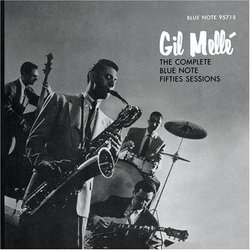 | Complete Blue Note 50's Sessions Complete Blue Note 50's Sessions Genre: Jazz Gil Melle is often awarded less acclaim for his chops than for his groundbreaking achievements (he was the first Caucasian signed to Blue Note; he built and played the first electronic horn; he built and played the first d... more » |
Larger Image |
CD DetailsSynopsis
Amazon.com Gil Melle is often awarded less acclaim for his chops than for his groundbreaking achievements (he was the first Caucasian signed to Blue Note; he built and played the first electronic horn; he built and played the first drum machine and started what many consider to be the first electronic "band," the Electronauts). On The Complete Blue Note Fifties Sessions we are afforded a portrait of Melle as more the cool-era combo leader than the trail-blazing innovator. That's not all bad. After all, Melle had the formidable Blue Note stable from which to draw. Highlights here include Tal Farlow's tasteful guitar figures on a number or tracks as well as appearances by Oscar Pettiford, Red Mitchell, and Max Roach. Don't be put off by Melle's out-cat reputation. This is slinky, easily-digested cool swinging. --S. Duda Similarly Requested CDs
|
CD ReviewsDon't Miss Melle Red J. Comb | Chicago, IL United States | 07/24/2002 (5 out of 5 stars) "I actually learned of Gil Melle from a book on jazz album cover art. It seems he was an accomplished artist and photographer whose often uncredited work graced numerous albums on Blue Note and Prestige. He was also one of the more daring jazz innovators of the first half of the 50's. His lineups might include guitar, trombone, french horn, or even tuba. The music in this double CD brings together some 5 or 6 early Blue Note LPs. You can hear some Birth of the Cool in here, some MJQ, some Mulligan, some classical. My favorites from this collection are those from the first LP, with their Astronomy theme, female voice, vibes, and general surreal ambience. They sort of presaged Melle's later work in electronics and weird sound (he scored "Rod Serling's Night Gallery" and some sci-fi films). My only problems with this great item are non-musical. First, I would have liked one of Melle's early original art covers; this would have made it a knockout. Also, I think someone other than Melle himself could have done the liner notes. He seems a little too eager to tell us what a Renaissance man he is (some of his claims are a tad dubious anyway), and to urge us to forget the old stuff (like what's contained here). Still, to hear the music is to forgive all." A good disc by the late maverick saxophonist N. Dorward | Toronto, ON Canada | 02/26/2005 (4 out of 5 stars) "This 2-CD set compiles the late Gil Mellé's various early- to mid-1950s sessions for Blue Note, which feature some fascinating lineups (the personnel include George Wallington, Joe Cinderella, Eddie Bert, Max Roach, Joe Morello, Tal Farlow, Ed Thigpen, Red Mitchell, Don Butterfield, Oscar Pettiford......) & Mellé's adventurous compositions. Though the recordings were made in Van Gelder's New Jersey studio (some of the earliest ones he did), the sound is rather West Coastish--you're likely to be reminded of Gerry Mulligan's work, because the leader sticks to baritone for most of the sessions, favours partnerships with trombonists and soft, tasteful brushwork from the drummer, & except for the session with Wallington avoids pianists: mostly the harmonies are filled in by guitar, & on occasion the guitarist simply lays out. Despite Mellé's overtly "experimental" streak, these tracks have a slinky, low-key vibe that prevents them from really seeming all that angular. Mellé is exceedingly boastful about his own genius in the liner notes--among other things, taking credit for "every innovation in electronic music" in the past century, for introducing Alfred Lion to Rudy Van Gelder, for introducing the idea of guitar-based rather than piano-based jazz (& thus inventing "the very basis of rock music"), &c &c--a display of egotism the likes of which I've never seen before (he makes Keith Jarrett sound modest). That's too much weight to place on the album--it's good, but not THAT good."
|

